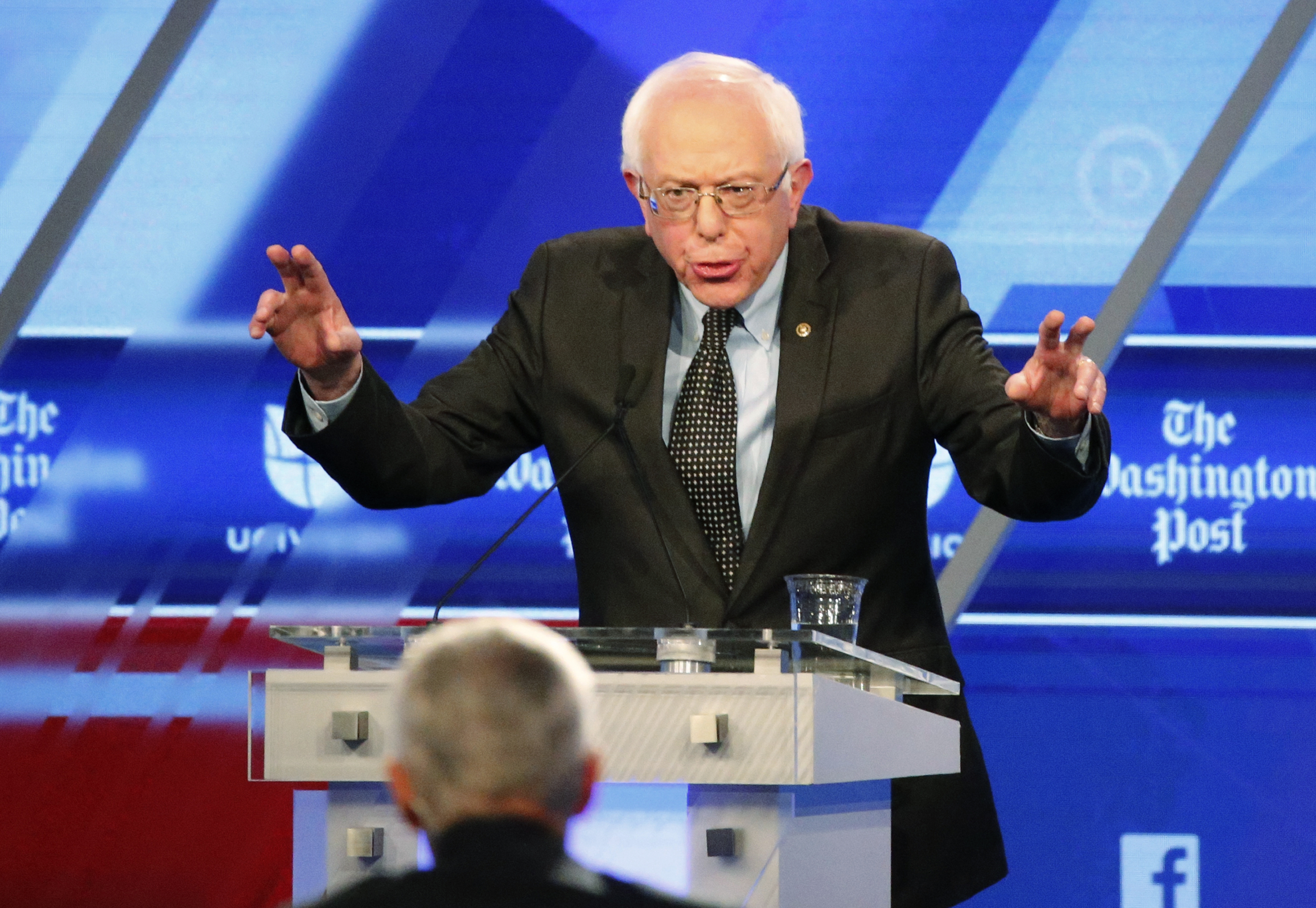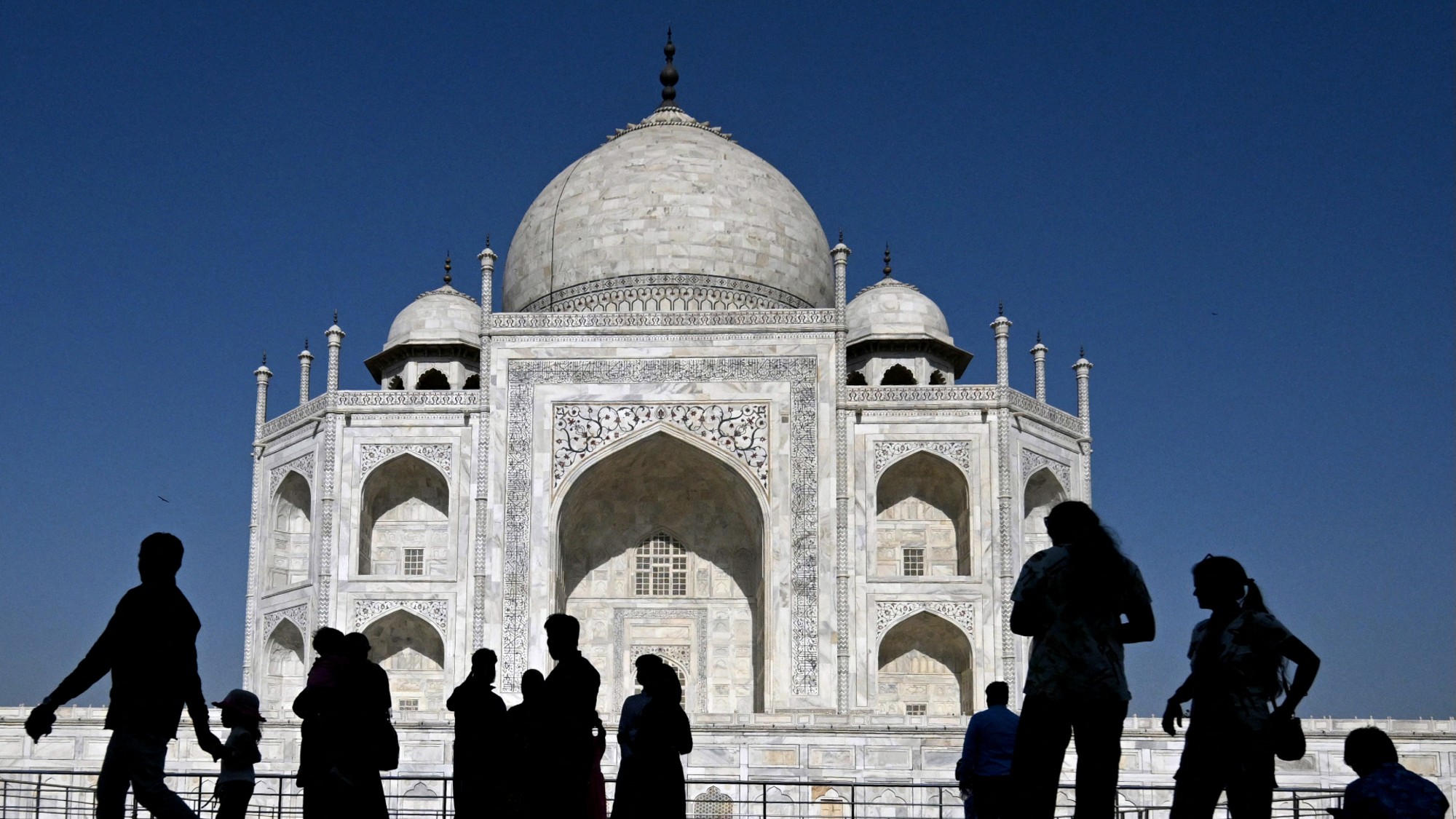How Bernie Sanders stepped in it on Fidel Castro and Cuba
No doubt, saying positive things about Castro's Cuba in Miami is tone deaf. But the socialist senator wasn't wrong, either.


Wednesday night's Democratic debate in Miami was a big win for Univision, the Spanish-language channel that provided two out of the three moderators, who came off quite well. But the debate was a mixed bag for the two candidates, Hillary Clinton and Sen. Bernie Sanders.
There was some pretty intense sparring between Clinton and Sanders, but it mostly involved votes in the Senate, focusing on cherry-picked parts of large legislation and one big bill, the 2007 immigration reform package — and Gov. Chris Christie (R) was not there to roll his eyes and explain that nobody cares about Senate procedural fights, as he did in several Republican debates. Instead, the biggest sparks flew between moderator and candidate.
Univision's Jorge Ramos pushed both candidates into saying they would not (or strive not to, in Clinton's case) deport either children or anyone in the United States illegally who doesn't have a criminal record — something you should expect to hear about again in the general election. He also asked Clinton if she would drop out of the race if the Justice Department indicted her over her emails, and if she lied to the family members of the four Americans killed in Benghazi.
The Week
Escape your echo chamber. Get the facts behind the news, plus analysis from multiple perspectives.

Sign up for The Week's Free Newsletters
From our morning news briefing to a weekly Good News Newsletter, get the best of The Week delivered directly to your inbox.
From our morning news briefing to a weekly Good News Newsletter, get the best of The Week delivered directly to your inbox.
That question earned Ramos one of the two audience boos of the night. The other audience rumble came after moderator Maria Elena Salinas played a video clip from 1985 in which then-Burlington Mayor Sanders said some nice things about Fidel Castro. This is how Salinas set up the clip: "In 1985, you praised the Sandinista government and you said that Daniel Ortega was an impressive guy. This is what you said about Fidel Castro."
Judging from the reaction to the clip and Sanders' response, you can expect Sanders to lose the Florida primary on Tuesday. (In Real Clear Politics' aggregation of polls, Clinton leads Sanders by 31.5 points, 62 percent to 30.5 percent.)
Salinas followed up the clip with a loaded question: "In South Florida there are still open wounds among some exiles regarding socialism and communism. So please explain what is the difference between the socialism that you profess and the socialism in Nicaragua, Cuba, and Venezuela."
Sanders began, "Well, let me just answer that" — and then didn't, explaining instead that he opposes the Monroe Doctrine and 70 years of the U.S. overthrowing democratically elected leaders in Latin America.
A free daily email with the biggest news stories of the day – and the best features from TheWeek.com
Salinas tried again: "Senator, in retrospect, have you ever regretted the characterizations that you made of Daniel Ortega and Fidel Castro that way?" Here's where Sanders could have been politically smarter:
If Sanders was already not going to answer Salinas' question, he could have skipped the part about how "it would be wrong not to state that in Cuba they have made some good advances in health care" and "made some progress in education." He could have repeated that it was up to the Nicaraguans to select who they wanted to lead them, and that Ronald Reagan could have been impeached for illegally financing the anti-Sandinista Contra militia by selling arms to Iran. He might have said that Fidel Castro's Cuba is "an authoritarian undemocratic country" and left off the "but on the other hand..." part. Instead, he set up Clinton for this little salvo:
I just want to add one thing to the question you were asking Senator Sanders. I think in that same interview, he praised what he called the revolution of values in Cuba and talked about how people were working for the common good, not for themselves. I just couldn't disagree more. You know, if the values are that you oppress people, you disappear people, you imprison people, or even kill people for expressing their opinions, for expressing freedom of speech, that is not the kind of revolution of values that I ever want to see anywhere. [Clinton, Univision debate]
Or, as Twitter put it:
Still, nothing Sanders said about Cuba or Castro was really incorrect, either in 1985 or during Wednesday's debate. Clinton is right (and smart to note) that "both Castros have to be considered authoritarian and dictatorial because they are not freely chosen by the people that are in Cuba." But under their "authoritarian and dictatorial" regime, literacy has hovered at around 100 percent for years, and not only does Cuba have the universal health care Sanders wants for America, it also has spare doctors to send abroad to places like Venezuela and, during the Ebola outbreak, West Africa. Sanders could have mentioned, but didn't, that Cuba has developed an innovative and promising lung cancer vaccine that America is hoping to adopt at home.
These revolutionary changes were broadly popular in Cuba, at least among the first generation to live under them (and chose not to flee to Florida). And yes, as Sanders said, decades of self-serving, anti-democratic meddling in Latin America did cause "a lot of very strong anti-American sentiments" in the region, and have unintended consequences. Whether that was a net good or bad for the country Sanders is running to lead is subject to fierce debate. But Sanders' argument that it was both morally wrong and counterproductive is justifiable and within the mainstream parameters.
The quote Clinton alluded to about Cuban values was from an interview Sanders gave to The Burlington Free Press after returning from a trip to Cuba in 1989. "The people we met had an almost religious affection" for Fidel Castro, Sanders said, according to a deeply critical article by Daily Beast cultural news editor Michael Moynahan. "The revolution there is far [deeper] and more profound than I understood it to be. It really is a revolution in terms of values." He mentioned Cuba's free, "very high quality healthcare" and apparent lack of homelessness and hungry children. Cuba has made "enormous progress" in "improving the lives of poor people and working people," Sanders said.
It is very possible that none of that is wrong, and Sanders was certainly right that Cuba has its "deficiencies," too. It's worth noting that these comments are 30 years old — not just because people are allowed to change their views over three decades, especially as events unfold on the world stage, but also because Sanders actually doesn't sound that different today than he did in 1985.
That's kind of Sanders' charm and his big selling point: What you see is what you get.
Hillary Clinton had a very effective line in the debate about how she is not a "natural politician" like her husband, Bill Clinton, and President Obama. Some people have scoffed that Clinton is of course a political animal, having spent almost a quarter century in or near the highest tiers of power, but what she meant is that she isn't very good at retail politics and political theater. Sanders has been in politics for longer than Clinton, and he doesn't come across as much of a natural politician, either. Voters say they want honesty and candor in their candidate, especially this year. Sanders has that in spades — this Castro moment will be one test of whether that authenticity will help him or hurt him at the ballot box.
Editor's note: This article originally mischaracterized where exactly in Africa Cuban doctors were sent during the Ebola outbreak. It has since been corrected. We regret the error.
Peter has worked as a news and culture writer and editor at The Week since the site's launch in 2008. He covers politics, world affairs, religion and cultural currents. His journalism career began as a copy editor at a financial newswire and has included editorial positions at The New York Times Magazine, Facts on File, and Oregon State University.
-
 The 8 best sci-fi series of all time
The 8 best sci-fi series of all timethe week recommends Imagining — and fearing — the future continues to give us compelling and thoughtful television
-
 The Trump administration’s plans to dismantle the Department of Education
The Trump administration’s plans to dismantle the Department of EducationThe Explainer The president aims to fulfill his promise to get rid of the agency
-
 ‘These attacks rely on a political repurposing’
‘These attacks rely on a political repurposing’Instant Opinion Opinion, comment and editorials of the day
-
 Has Zohran Mamdani shown the Democrats how to win again?
Has Zohran Mamdani shown the Democrats how to win again?Today’s Big Question New York City mayoral election touted as victory for left-wing populists but moderate centrist wins elsewhere present more complex path for Democratic Party
-
 Millions turn out for anti-Trump ‘No Kings’ rallies
Millions turn out for anti-Trump ‘No Kings’ ralliesSpeed Read An estimated 7 million people participated, 2 million more than at the first ‘No Kings’ protest in June
-
 Ghislaine Maxwell: angling for a Trump pardon
Ghislaine Maxwell: angling for a Trump pardonTalking Point Convicted sex trafficker's testimony could shed new light on president's links to Jeffrey Epstein
-
 The last words and final moments of 40 presidents
The last words and final moments of 40 presidentsThe Explainer Some are eloquent quotes worthy of the holders of the highest office in the nation, and others... aren't
-
 The JFK files: the truth at last?
The JFK files: the truth at last?In The Spotlight More than 64,000 previously classified documents relating the 1963 assassination of John F. Kennedy have been released by the Trump administration
-
 'Seriously, not literally': how should the world take Donald Trump?
'Seriously, not literally': how should the world take Donald Trump?Today's big question White House rhetoric and reality look likely to become increasingly blurred
-
 Will Trump's 'madman' strategy pay off?
Will Trump's 'madman' strategy pay off?Today's Big Question Incoming US president likes to seem unpredictable but, this time round, world leaders could be wise to his playbook
-
 Democrats vs. Republicans: who are US billionaires backing?
Democrats vs. Republicans: who are US billionaires backing?The Explainer Younger tech titans join 'boys' club throwing money and support' behind President Trump, while older plutocrats quietly rebuke new administration

